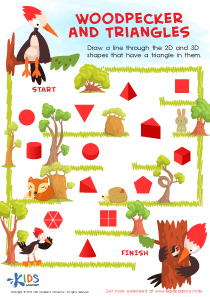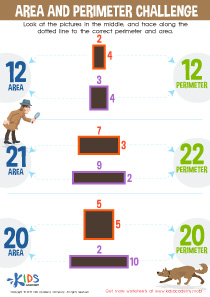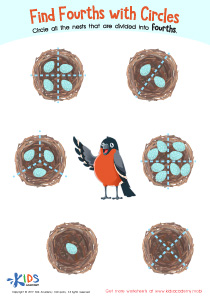Extra Challenge Tracing Shapes Worksheets for Ages 7-9
4 filtered results
-
From - To
Unleash your child's potential with our "Extra Challenge Tracing Shapes Worksheets for Ages 7-9." These engaging printables are designed to boost fine motor skills while making math fun. Each carefully crafted worksheet presents unique and challenging geometric shapes to help young learners enhance precision and hand-eye coordination. Perfect for classroom activities or at-home learning, these worksheets provide an excellent resource for deepening understanding of geometry concepts in an enjoyable way. Make tracing an adventure in learning and watch your child excel with these stimulating, educational tools. Start developing essential math skills today!
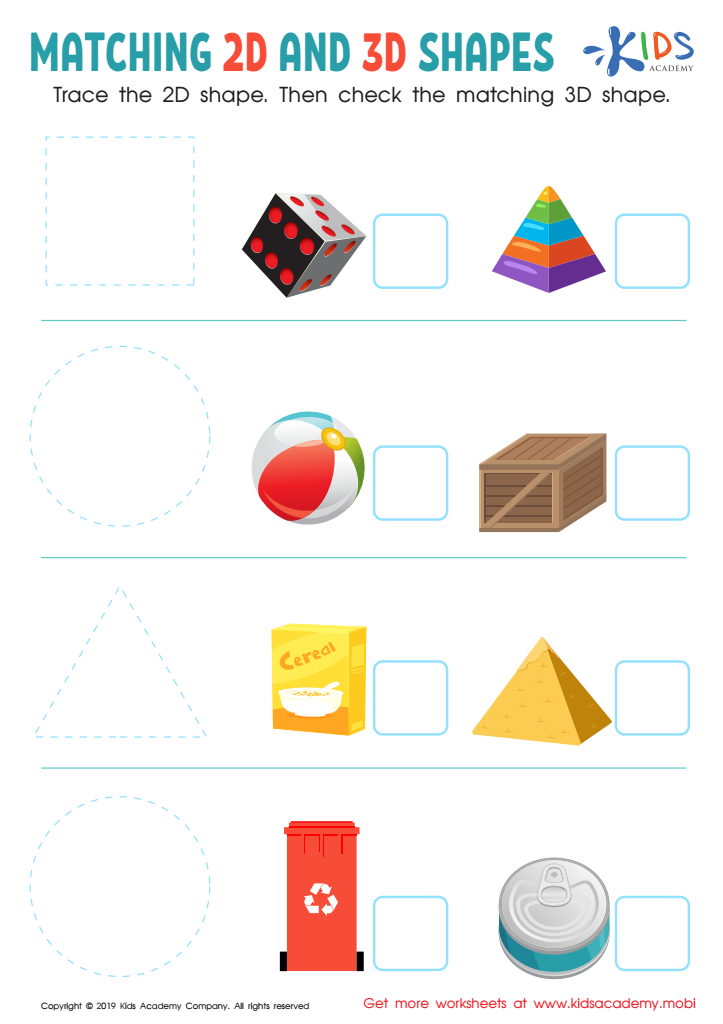

Matching 2D and 3D Shapes Worksheet
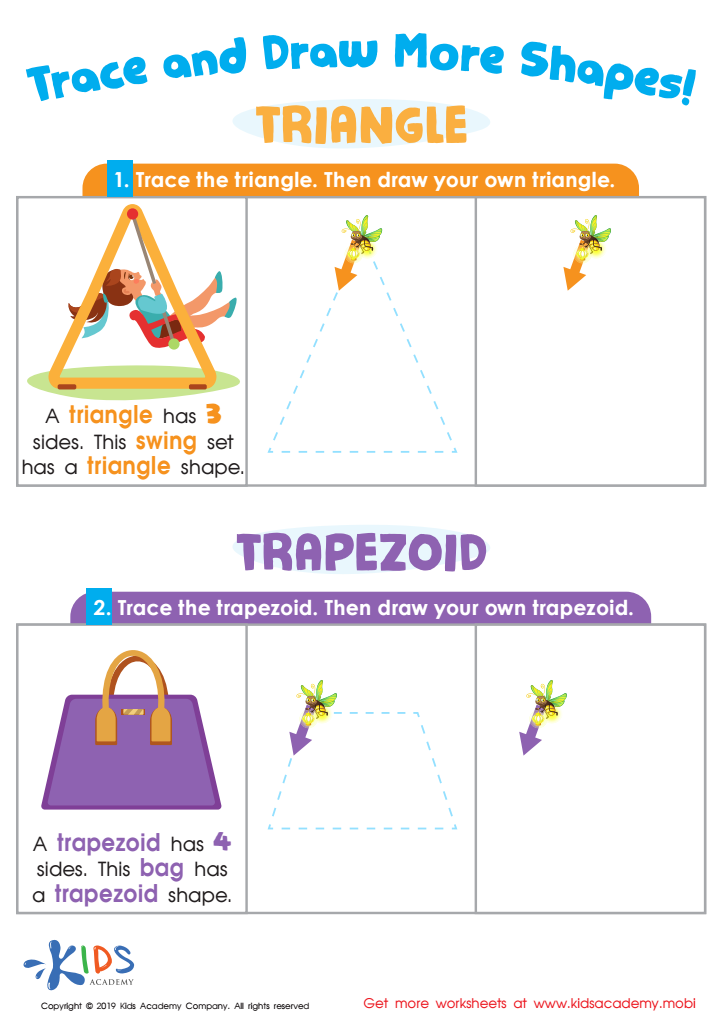

Trace and Draw More Shapes Worksheet
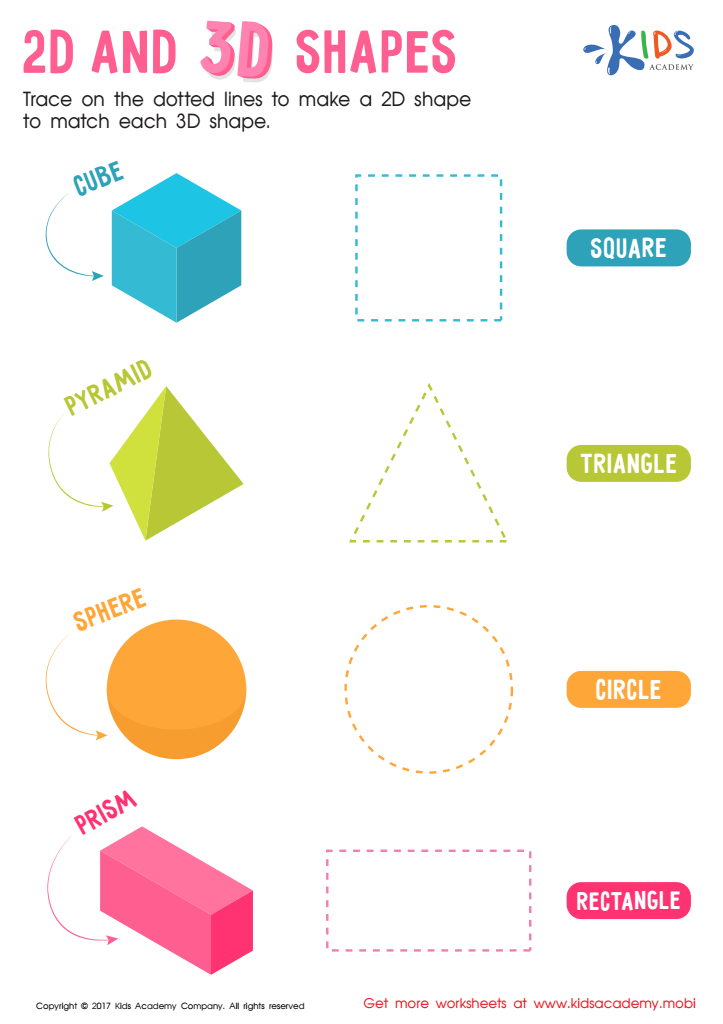

2D and 3D Shapes Worksheet
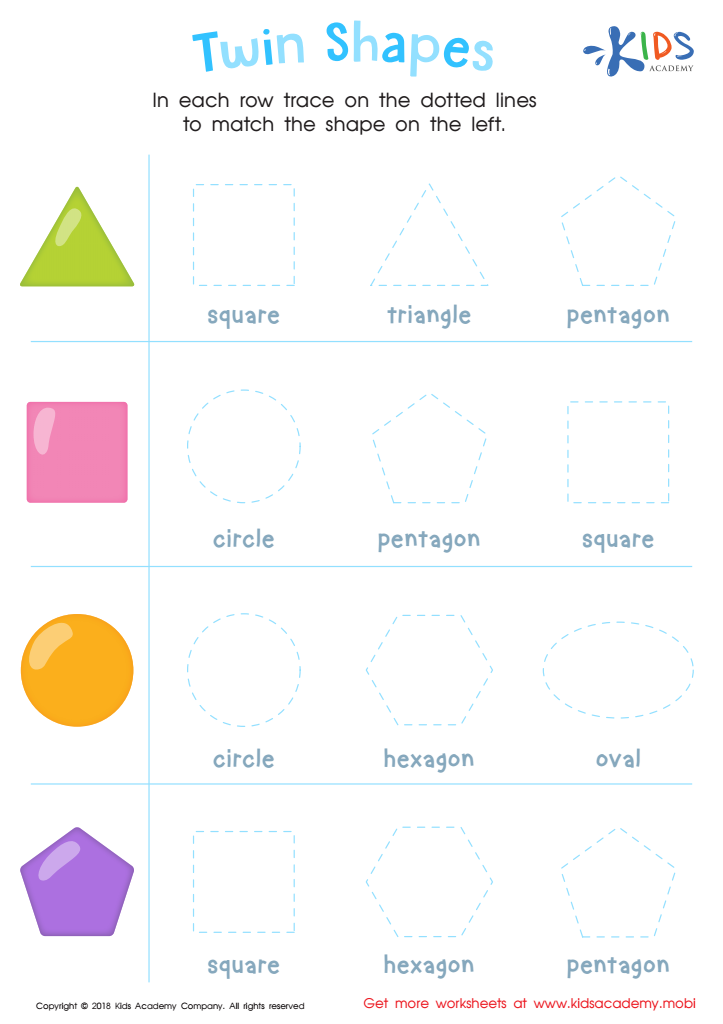

Twin Shapes Dot-to-Dot Worksheet
Extra Challenge Tracing Shapes for Ages 7-9 is essential for fostering foundational skills in young children, providing remarkable cognitive and developmental benefits. Tracing shapes can significantly enhance fine motor skills, crucial for tasks like writing and using tools. As children carefully trace geometric figures, they develop hand-eye coordination, precision, and overall dexterity, improving their ability to control writing instruments.
Furthermore, shape tracing activities serve as an introductory exposure to geometry, a fundamental branch of mathematics. By recognizing and tracing different shapes, children begin to understand the basic properties of geometric figures, laying the groundwork for more advanced mathematical concepts. This engagement with shapes also strengthens their spatial awareness, critical for solving problems related to positions, distances, and physical relationships.
Cognitive skills are also sharpened as kids approach the activity of tracing. It requires attention to detail, focus, and patience, fostering a structured way of thinking and problem-solving. Additionally, it supports visual perception and memory retention, necessary for academic success across various subjects.
Lastly, these activities encourage perseverance and self-confidence. As children complete challenges and see their improvement over time, they gain a sense of achievement, motivating them to tackle more complex tasks and instilling lifelong learning habits. Thus, parents and teachers should prioritize such activities to nurture well-rounded development.
 Assign to My Students
Assign to My Students












